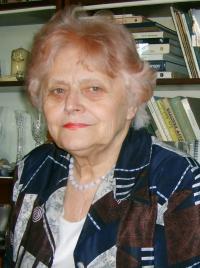To make it more exciting, I must say that it wasn’t a kind of camp for political prisoners but for sexual ones

Download image
She was born on 7 September 1930 in Mława in a higher class family with artistic roots. The first few years of her life, she spent in Warsaw. In September 1939, the family left Warsaw and went to the East. Her Father was killed by the Soviets. Elżbieta Wrzosek’s mother with her small kids and sister settled in Stołowicze where they stayed the whole time during the war and occupation. While the Jews were exterminated around Baranowicze and Słonim, the Wrzosek’s family took the trouble to save two Jewish children. The hideout for one of the kids was disclosed to the Germans and the girl was executed. The Jewish boy survived and afterwards he emigrated to Israel. After some years, Elżbieta Wrzosek’s mother - Teresa Dołęga-Wrzosek, for her attitude to the Jews, was conferred the title on Righteousnes among the Nations. She died as a result of sustained injuries caused by the Germans and because of the exhausting investigation made by the KGB. Elżbieta Wrzosek was the one who had to maintain and assume responsibility for the family. Thanks to the scholarship she got, she managed to get a degree from the State College of the Foreign Language. She graduated in German and Romance studies. She worked for a while in Prużany as a teacher, then she got married. Together with her husband, who was an engineer, they settled in Kujbyszewo. She was a headmaster of the Polish Social School in Baranowicze. She continues to be a very active person among the local community propagating Polish culture.
